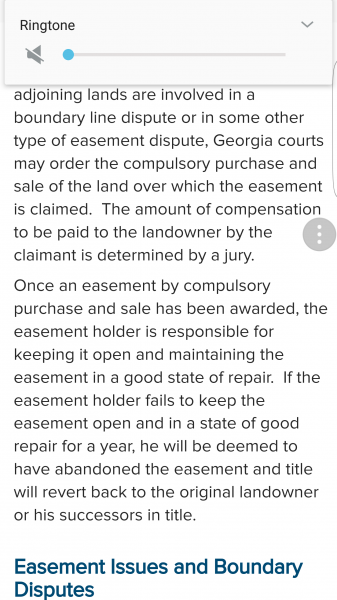- Joined
- Feb 7, 2013
- Messages
- 65,861
- Reaction score
- 73,852
Perhaps we are parsing words. Would you contend it is correct to say that while any individual parcel may be landlocked in Georgia in it's current state, there is legal remedy to cure that flaw which WILL result in legal access, but to your point.... it will cost money and may not be the access you desire.Nope, not saying that at all.
What I am saying is that it is possible to landlock a piece of land and not have the right to a way of necessity. It occurs in exactly the scenario set out by the OP - when the landlocked condition can be traced back to a common grantor, it is presumed that the grantor knew he was landlocking himself, and neither he nor his successors in interest can claim a way of necessity over the properties of the grantor deeded away.
My comment is based on the fact that every time someone discusses landlocked property, most will say that you can't have landlocked property in Georgia, and that you are always entitled to an easement for a way of necessity. That's simply not true, and you can't determine if the current owner is entitled to such an easement without a full examination of the title, and a qualified opinion. Course that usually costs some money, and that's just not the ODT way. Anonymous advice on the internet is always my prime source for legal and medical advice.
Usually the discussion comes up "I'm looking at piece of landlocked property, should I buy it" and the peanut gallery says "Sure go ahead, you're entitled to an easement." Maybe, maybe not.
There is another thread on here somewhere where the poster insisted that there was no such thing as landlocked property in Georgia, until he finally did the research and admitted I was correct.
I can show you sizeable piece of property right now in Oconee County that is totally landlocked with no right to access. I knew this already, but the timber company that owns our hunting lease (adjacent land) bought the timber on the landlocked parcel, and had to "rent" an easement to haul it out. When the term ran out, the easement ended. The owner of the easement got a free road as part of the deal, but the landlocked parcel is still landlocked.





